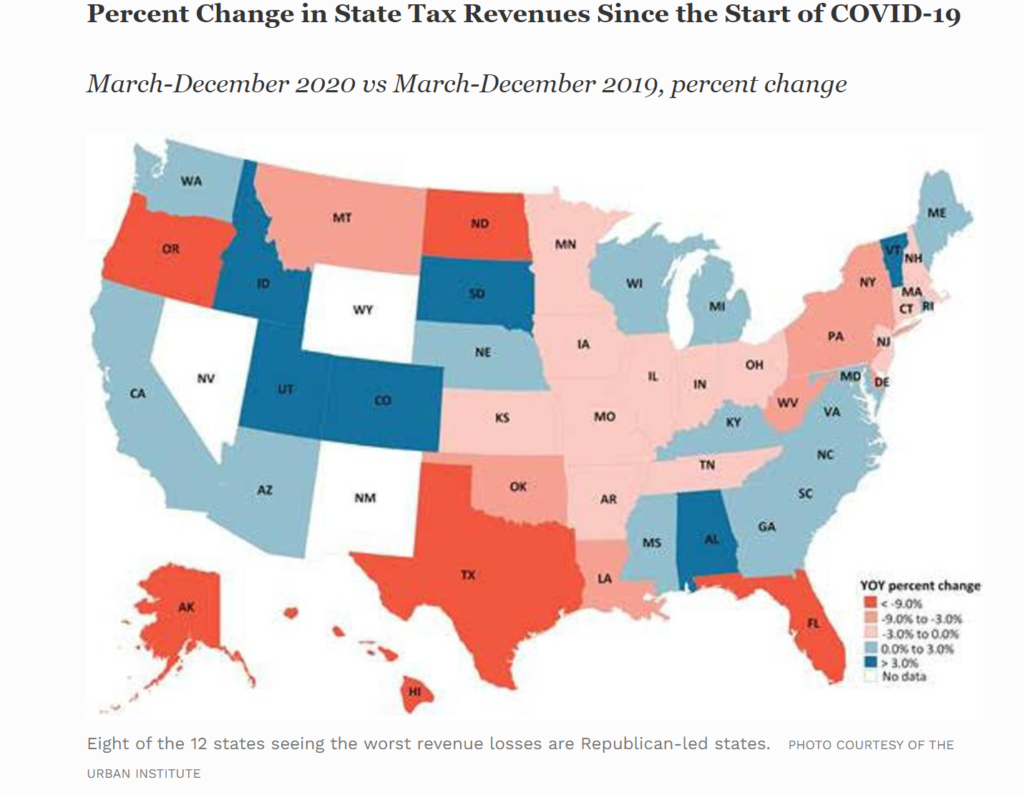Link: https://www.cnn.com/2021/03/05/politics/state-budgets-covid-relief-package/index.html
Excerpt:
“If the point of the stimulus bill is to just prevent state and local governments from having to cut back on spending or having to implement tax increases, then the $350 billion is way too much,” said Dan White, director of public-sector research at Moody’s Analytics. “Is that money better spent directly in terms of federal fiscal stimulus, as opposed to it flowing through states? If you use that money for PPP or for enhanced unemployment insurance, does it have a bigger bang for the buck in terms of economic stimulus?”
Moody’s Analytics now pegs the state and local budget shortfall at $61 billion when taking existing federal help into account. The left-leaning Center on Budget and Policy Priorities recently estimated that the budget gap is around $225 billion, but it noted that that doesn’t include states’ and localities’ costs to continue fighting the virus or helping their struggling residents and businesses.
Author(s): Tami Luhby
Publication Date: 5 March 2021
Publication Site: CNN
